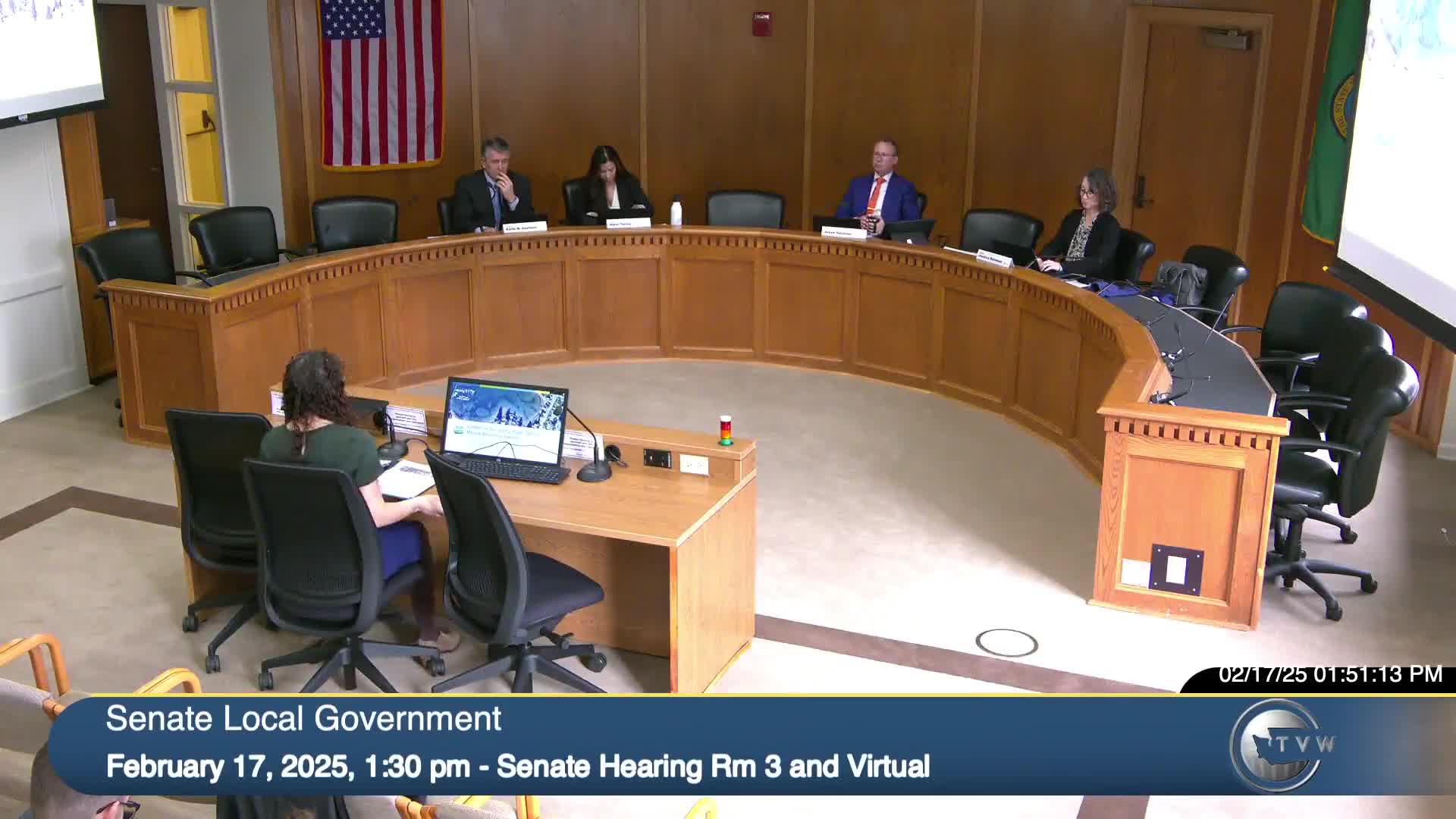Article not found
This article is no longer available. But don't worry—we've gathered other articles that discuss the same topic.
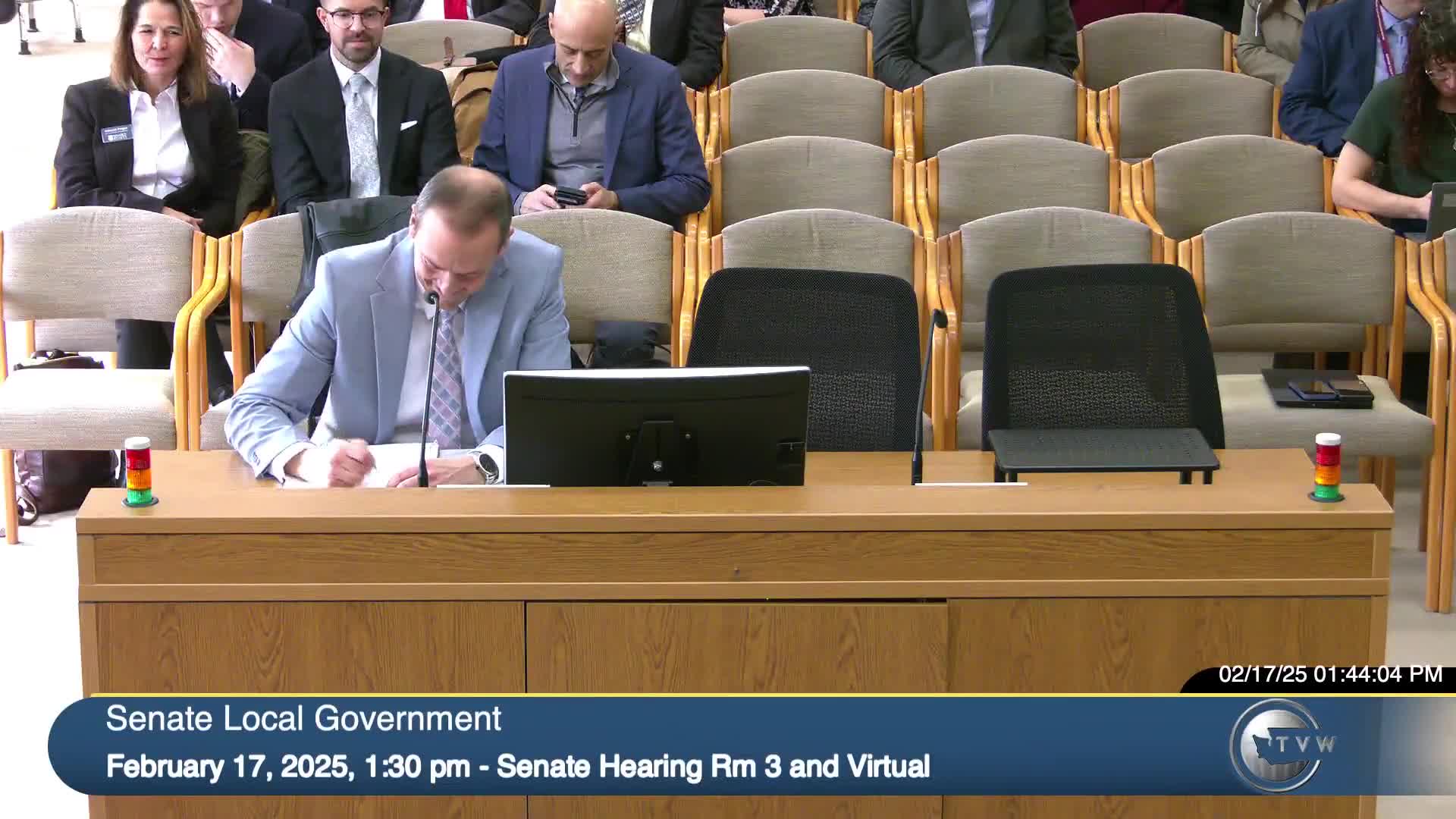
Senate bill would exempt Spokane’s waste‑to‑energy facility from cap‑and‑invest coverage; proponents cite emissions and local protections
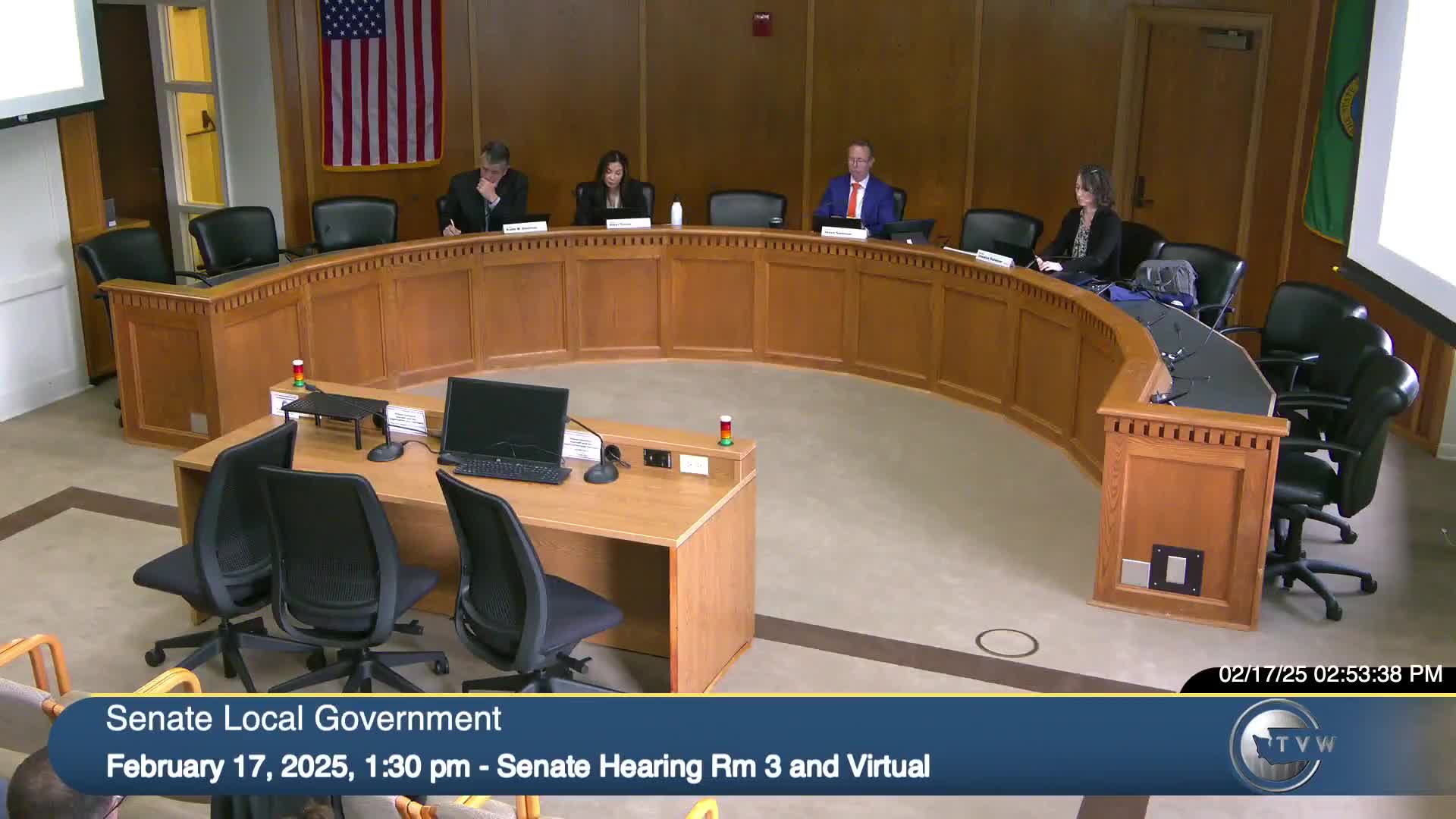
Bill would require hearing examiners to issue final quasi‑judicial land‑use decisions; cities and counties debate a statewide mandate
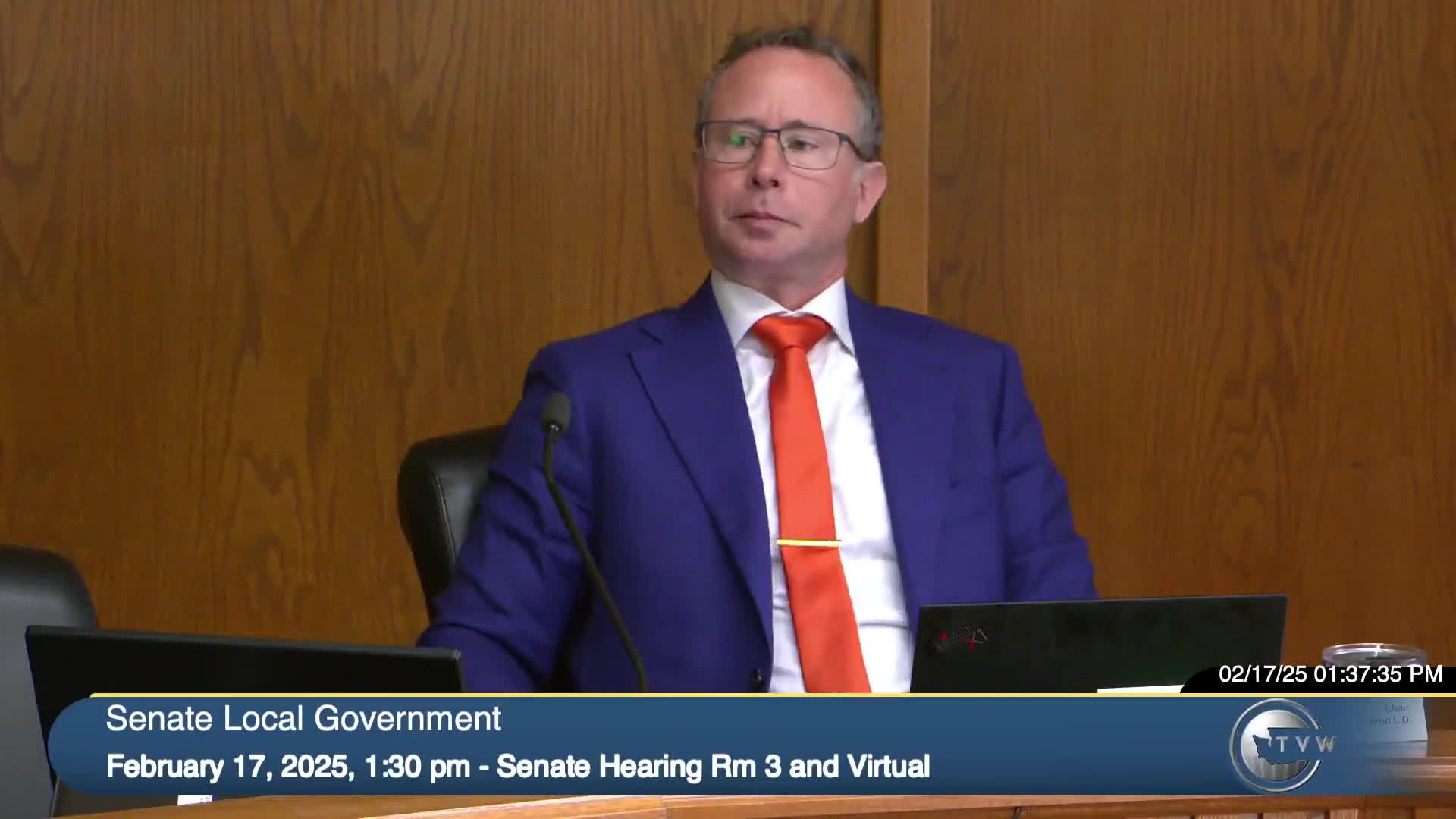
Committee hears bill to condition waivers of municipal utility hookup fees on recorded affordability covenants
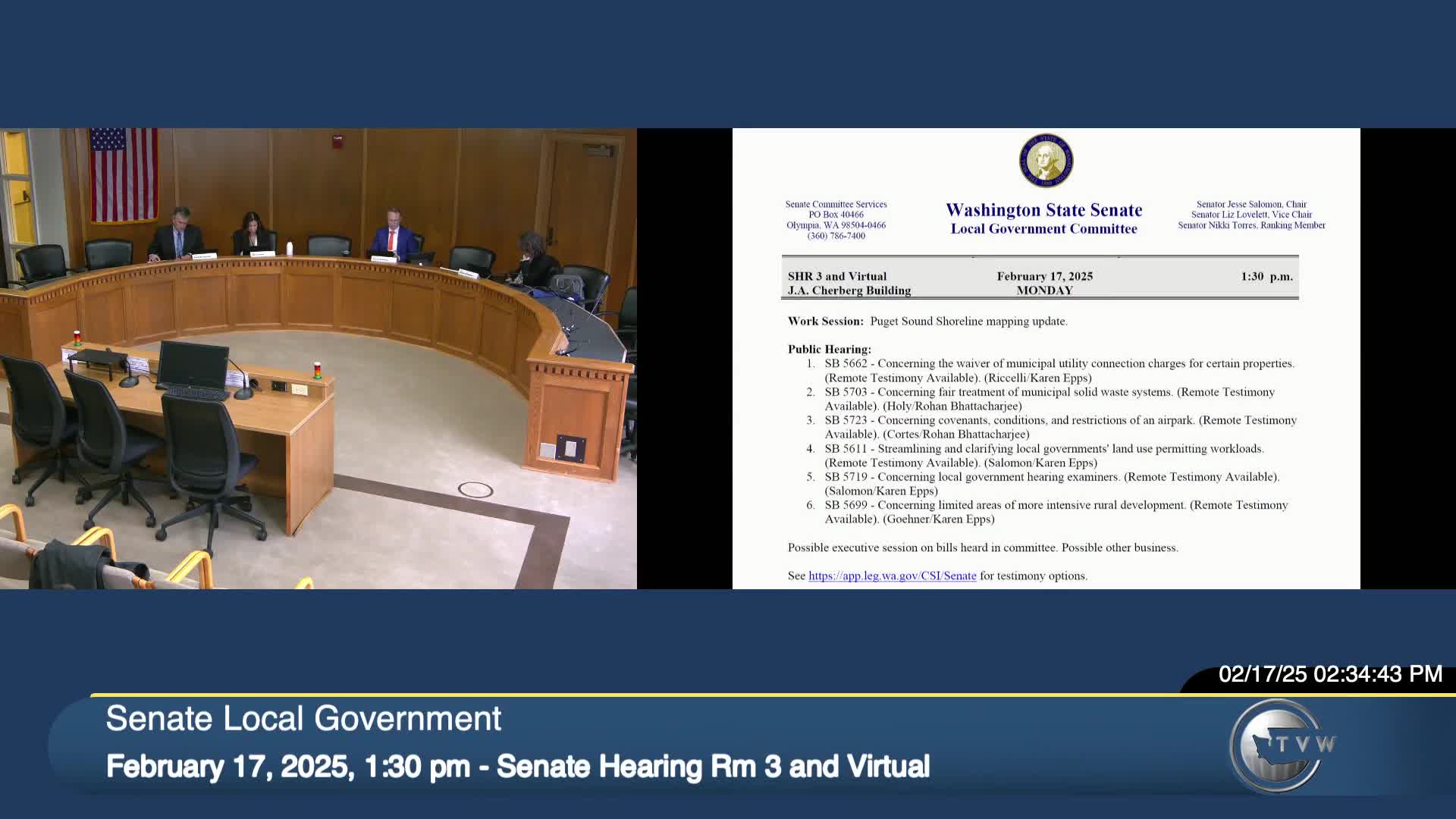
Bill would clarify binding site plan eligibility and add limited 'builder's remedy' for lapsed land‑use permit timelines
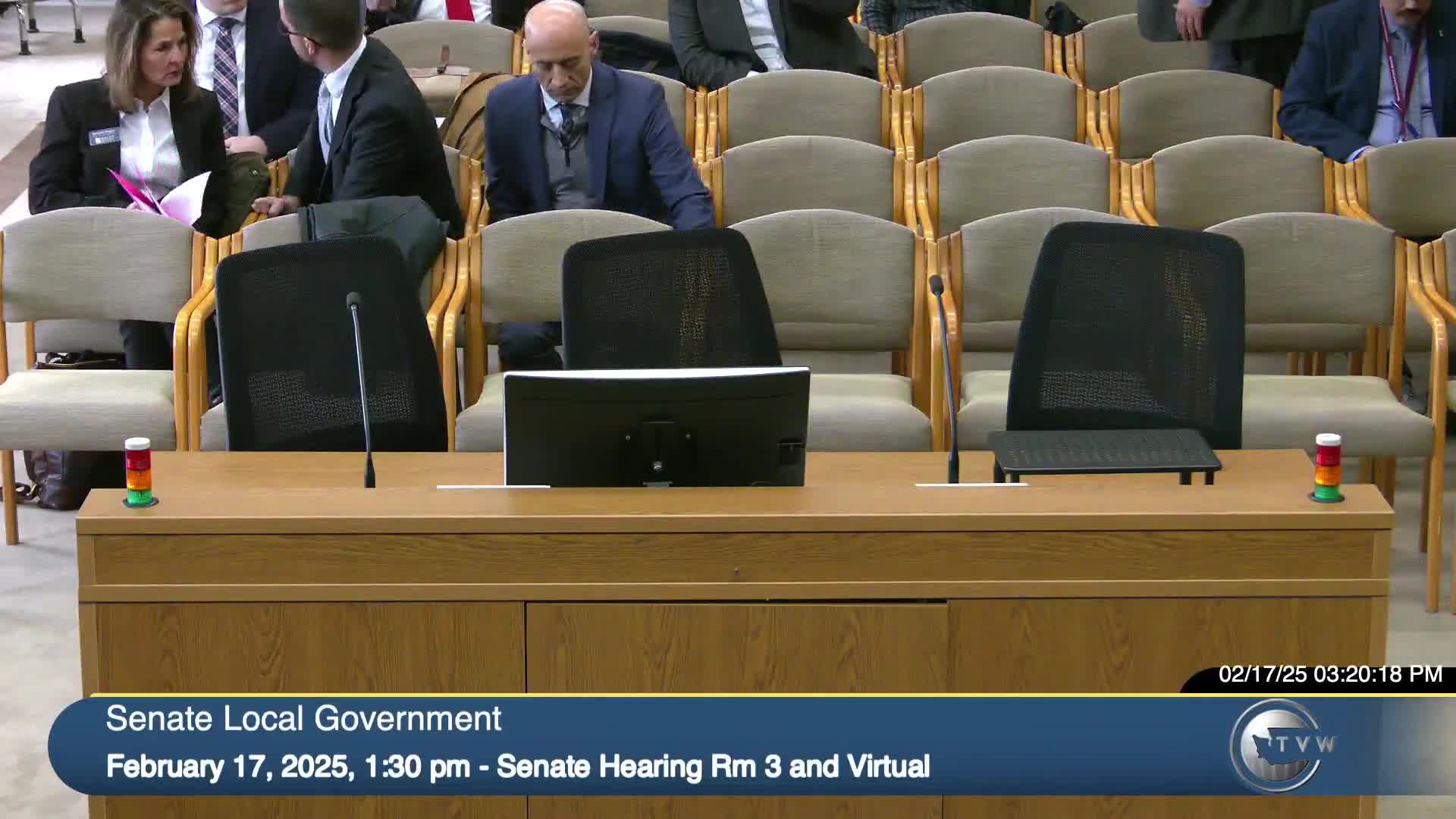
Senate bill would loosen restrictions in limited areas of more intensive rural development to allow some commercial and industrial uses
